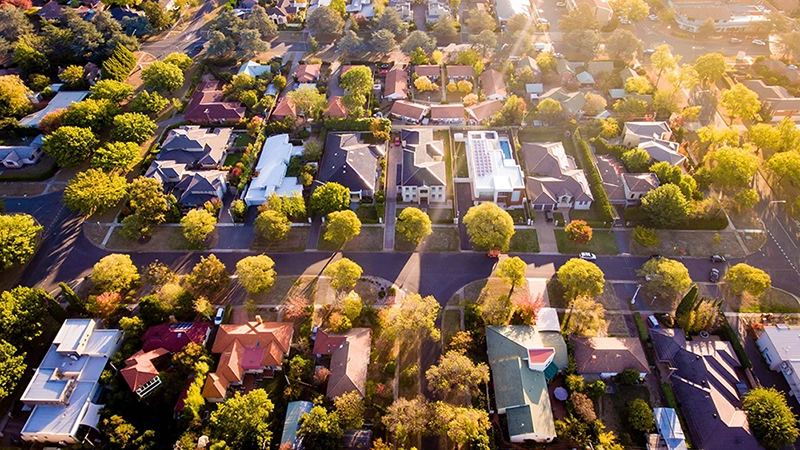Updated: 29 May, 2025
The Reserve Bank of Australia (RBA) increased the cash rate by 0.25 percentage points; taking the historically low cash rate to 0.35%.
An increase in the cash rate causes the interest rates on variable-rate mortgages to go up as well, as most lenders, including major banks, pass on the increased cost of cash to their customers. But this is the first time the cash rate has increased since November 2010. Since then, the RBA had been reducing the cash rate to try to boost an economy hindered by post-GFC conditions, the pandemic and more.
As a result, many Australian homeowners have never experienced increased interest payments as a result of cash rate hike. You may be among that cohort.
How Does The Cash Rate Rise Increase My Interest Rate?
Lenders add a margin to the official cash rate to determine the variable interest rate at which they lend to customers. So if you have a variable interest rate, then it will almost certainly increase with the increase of the cash rate.
Home Loan Experts CEO Alan Hemmings says, “In a rising interest rate environment, customers need to understand the effects rate increases will have on their repayments and borrowing power – and plan accordingly.”
How Much Is My Monthly Repayment Going to Increase?
The following chart shows how much the extra .25% in interest will cost homeowners, based on the size of their loan.
| Loan Amount | Before Increase (1.89%) | After Increase (2.14%) | Difference |
|---|---|---|---|
| $500,0000 | $1,821 | $1,883 | $62 |
| $600,000 | $2,185 | $2,260 | $75 |
| $700,000 | $2,549 | $2,637 | $88 |
| $800,0000 | $2,913 | $3,013 | $100 |
| $900,000 | $3,277 | $3,390 | $113 |
| $1 million | $3,641 | $3,767 | $126 |
(These loan repayments were based on the lowest variable rate we can offer over a 30-year term using our repayment calculator calculated as of 3 May 2022. Rates are subject to change from this date.)
Did The Big Four Pass On The Rate Rise?
All of the big four banks have passed on the rate rise in full.
All of the big four banks will be passing on the rate increase on their variable-rate, owner-occupier loans in full:
- ANZ: 0.25% (25 basis points), effective from 13 May 2022
- CBA: 0.25% (25 basis points) effective from 20 May 2022
- NAB: 0.25% (25 basis points) effective from 13 May 2022
- Westpac 0.25% (25 basis points) effective from 17 May 2022
What To Do If Your Interest Rate Increases
“Most economists are predicting multiple cash rate increases in calendar year 2022, with a total increase of somewhere between 1.2 and 1.4 percentage points, some or all of which lenders may pass on to borrowers. For perspective, an increase of 1.3 percentage points would mean clients borrowing $500,000 would see their repayments increase by $319 per month.”
For home buyers, a cash rate rise has a huge effect on your borrowing power. Hemmings explains, “For example, a couple earning $150,000, with living expenses of $5,000 a month and a credit card with a limit of $5,000, could borrow approximately $830,000 prior to today. A 1.3 percentage point increase in their interest rate would mean the same couple could borrow only $735,000, a reduction of nearly $100,000.”
So rising interest rates are definitely a potential burden for homeowners and prospective buyers. But here’s what you can do to keep your costs as low as possible:
- For homeowners, refinance your home loan to one with a better rate.
- Look beyond the interest rates, as there are other methods you can use to soften the blow of a rate rise, such as switching to a fixed-rate loan and making extra repayments.
- If you’re on a fixed-rate home loan already and it’s nearing the end of its term, break costs and other expenses can sometimes make it cheaper to accept the rate increase – but not always. If refinancing to a lower rate will allow you to recoup the expense of breaking from the fixed loan, then it can still be a good option. Use our refinance calculator to determine how much refinancing can save you. This will help you make an informed decision.
- For home buyers, research the market to see which lenders have the best interest rates. A mortgage broker can help you decide which home loan suits you best. Remember, interest rates are not the only consideration.
Whether you’re a homeowner or home buyer, Home Loan Experts mortgage brokers are here to help. Call us on 1300 889 743 or enquire online today.
Why did The RBA Increase The Cash Rate?
RBA governor Philip Lowe said high inflation numbers, better wage growth, and a low unemployment rate were indicative of a time for “normalising” interest rates from the emergency lows during the pandemic.
“The Board judged that now was the right time to begin withdrawing some of the extraordinary monetary support that was put in place to help the Australian economy during the pandemic. The economy has proven to be resilient and inflation has picked up more quickly, and to a higher level, than was expected. There is also evidence that wages growth is picking up. Given this, and the very low level of interest rates, it is appropriate to start the process of normalising monetary conditions.”
What happened when the RBA raised the cash rate in 2010?
The last time the RBA increased the cash rate was in November 2010, when it raised the rate from 3.25% to 4.75%. This was following the Global Financial Crisis.
AMP chief economist Shane Oliver said the variable interest rate on a home loan increased from 5.78% in September 2009 to 7.79% in November 2010.
- Higher interest rates lead to a fall in property prices, as people might not be able to borrow, or repay home loans they already have.
- For mortgage holders, the higher risk of default could lead to distressed selling.
If you’re on a variable-rate home loan, one of our expert mortgage brokers can negotiate with your lender on your behalf to get you a better deal.
Contact our mortgage brokers to get a free assessment of your home loan today. You can give us a call on 1300 889 743 or fill in our online assessment form.










